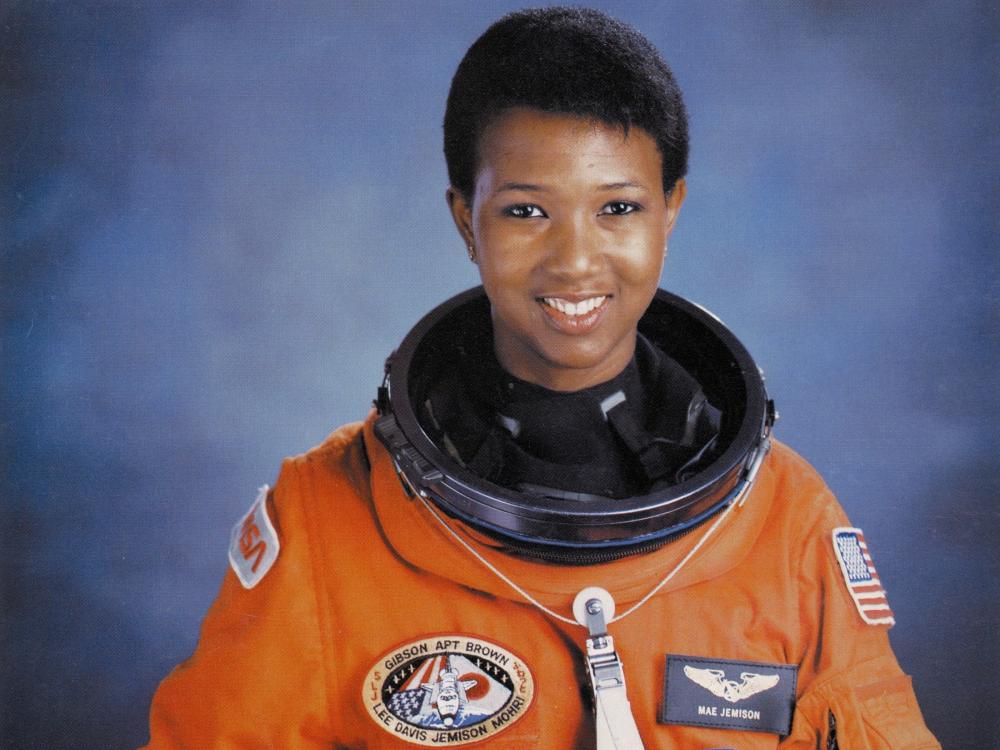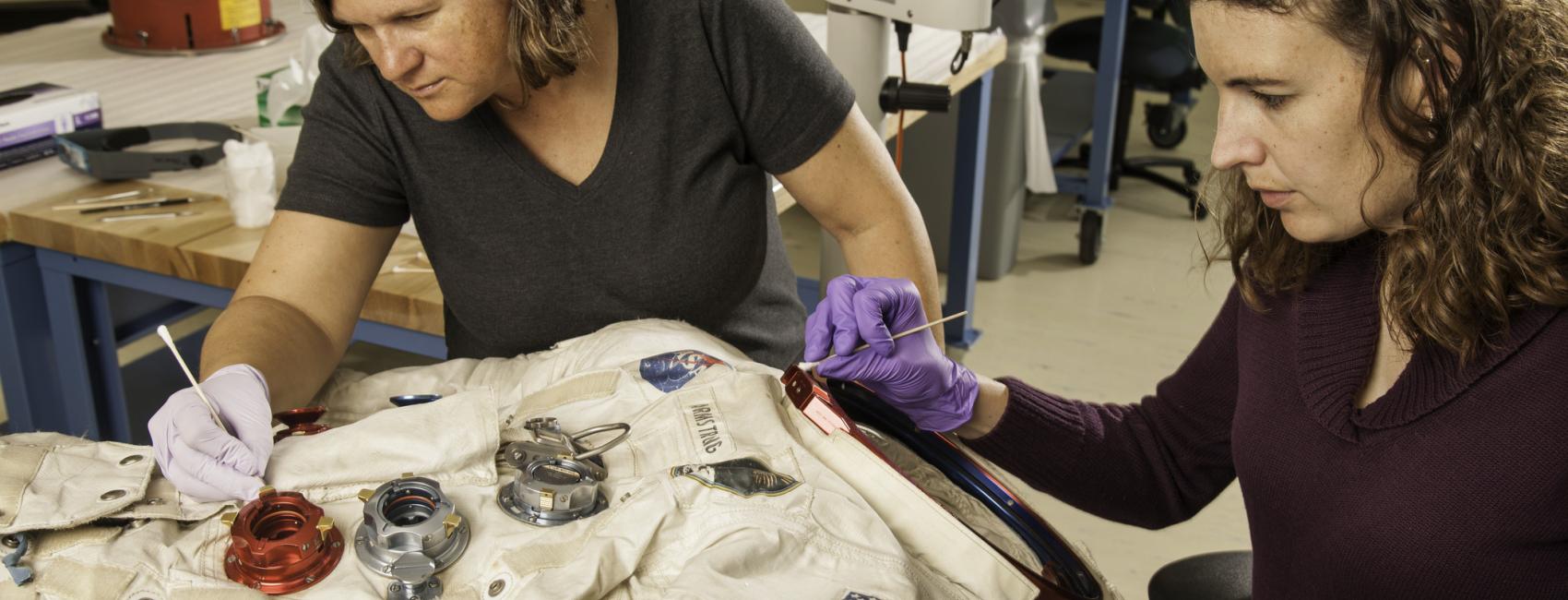
Sep 12, 2010
By Vickie Lindsey. intern in the Space History Division.
Have you ever had a dream of what you wanted to do in life? How about a wish that you hoped every day would come true? Were you ever truly inspired by something or someone at an early age that shaped the course of your life? Living a lifelong dream does not come to many, but for Dr. Mae Jemison, space travel was always an area of fascination. Space travel was her aspiration from an early age, and together with inspiration from astronaut predecessors Guy Bluford, Jr. and Sally Ride, Jemison not only achieved her goal of flying in space, but also did so as the first African American woman on September 12, 1992.
Dr. Mae C. Jemison, First African-American Woman in Space.
Jemison’s mother was a teacher and her father, a maintenance supervisor, while she grew up in Chicago. Jemison attended the Chicago Public School System and achieved honors in math and science. Although she had the support of her family, teachers and school staff discouraged Jemison from pursuing an education in science. Speaking to a crowd of students at her Chicago alma mater, Jemison recalled the propensity of some individuals to place her in a box. “Sometimes people want to tell you to act or to be a certain way. Sometimes people want to limit you because of their own limited imaginations.” She attended Stanford University at the age of 16 and earned her bachelor’s degree in Chemical Engineering and African American Studies. She went on to receive her medical degree from Cornell University and served two years in the Peace Corps in West Africa as a staff physician. Her responsibilities there included managing the health care delivery system for the Peace Corps and the U.S. Embassy in Liberia and Sierra Leone. Her background includes research in nuclear magnetic resonance spectroscopy, reproductive biology, and a Hepatitis B and rabies vaccine. In the wake of the Space Shuttle Challenger tragedy, Jemison left her private medical practice in Los Angeles and applied to become an astronaut candidate. She was one of 15 chosen from a pool of 2,000 applicants in 1988. She completed the intensive training, eventually being assigned to STS-47, a Spacelab Life Sciences mission. On this eight-day flight Jemison served as a science mission specialist and carried out experiments on the effects of space motion sickness, frog fertilization in space, and bone loss during spaceflight. The astronauts often bring along small personal mementos. Jemison chose several that were special to her: a flag from the Organization of African Unity, an Alpha Kappa Alpha Sorority banner, and proclamations from the Chicago Public School System and the DuSable Museum of African American History. Despite all of her achievements, and the fact that Jemison has served as an astronaut, she still confronts institutionalized prejudice similar to what she experienced as a student in Chicago. After Jemison returned from space, Jemison visited an elementary school and the principal told her that, at his school, he planned to have male teachers inform the children about the opportunities at Space Camp since men are more knowledgeable in science. Jemison asserted that one has to be mindful of preconceived ideas and perceptions of individuals. After leaving NASA, Dr. Jemison went on to teach at Dartmouth College, formed a company that researches advanced technologies, is an active public speaker, and continues to urge students to pursue their dreams and pursue math and science. She stresses the importance of excelling in school. Because of her achievements, a school in Detroit was named in her honor, the Mae C. Jemison Academy. Dr. Jemison gladly accepted the position of role model and hoped to remind other African Americans that the sky is the limit!

We rely on the generous support of donors, sponsors, members, and other benefactors to share the history and impact of aviation and spaceflight, educate the public, and inspire future generations. With your help, we can continue to preserve and safeguard the world’s most comprehensive collection of artifacts representing the great achievements of flight and space exploration.
We rely on the generous support of donors, sponsors, members, and other benefactors to share the history and impact of aviation and spaceflight, educate the public, and inspire future generations. With your help, we can continue to preserve and safeguard the world’s most comprehensive collection of artifacts representing the great achievements of flight and space exploration.